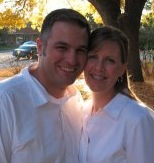 In 2002 President George W. Bush said,
In 2002 President George W. Bush said,
“The public education system . . . is where children from all over America learn to be responsible citizens, and learn to have the skills necessary to take advantage of our fantastic opportunistic society.”
At first blush this is just a gaffe, Freudian in my opinion.
But there is much that is more of concern in this statement than a private-school boy not knowing the proper usage of the word “opportunistic.”
The first point of concern is whether the school system should be where children should “learn to be responsible citizens.”
Citizenship is learned at the feet of parents through discussion, everyday choices, and exposure to influences.
This can often give a very bad result. The school system may serve as a stopgap against crummy home environments, but this highlights the other problem with Mr. Bush’s comment: the system is too focused on “skills necessary to take advantage of our fantastic opportun[ity-abundant] society.”
Citizenship should be taught in the home, but isn’t because the responsibility has been abdicated to the schools that are too concerned with job training.
So where is the citizenship education happening? It’s not.
And the result?
“A major study by the Shorenstein Center at Harvard University of the 2000 election asked respondents about six key positions held by Bush or Gore. Most Americans questioned could correctly identify only one of the candidates’ positions. In the average answer, 46 percent of those surveyed said they did not know and 16 percent got it wrong.
“Three fourths of U.S. citizens queried in another survey about key aspects of democracy could answer only 13 percent of the questions correctly, though many of the facts known by relatively small percentages of the public seem critical to understanding—let alone effectively acting in the political world: fundamental rules of the game; classic civil liberties . . . the names of representatives; many important policy positions of Presidential candidates or the political parties; and significant public policies.’” (Give Me Liberty: A Handbook for American Revolutionaries Naomi Wolf, p. 177)
John Adams said,
“The preservation of the means of knowledge among the lowest ranks, is of more importance to the public, than all the property of all the rich men in the country.”
But we have abdicated our citizenship to those rich men. We don’t discuss politics and we don’t write to or otherwise pressure our representatives to do what we want them to. We don’t study or even read the Constitution or the writings of the founders.
As long as we can get a tee time and a hair appointment, we figure our country is being well-managed.
Well, in a sense it is — being managed, that is. It’s being managed by an oligarchy, an aristocracy, because the rest of us either feel we have no say or don’t care.
“We the people” was a very profound statement in its time. Never before had a government been established by planters and printers.
Even in previous attempts at democracy, successful to some degree, the governments were established by (and maintained for) an aristocratic elite.
We are letting our legacy be gently wrested from us by power- and money-hungry elites. And as long as we don’t throw up a stink about it, they’ll keep tugging. If it were a purse or wallet, we would scream, “STOP IT! THIEF!”
Scream At the Thieves
So how do we scream at these thieves? Our representatives aren’t as insulated as a lot of us think. Most of our state representatives have their cell phone numbers published (at least in their campaign literature). All of them, state and federal, will respond to a constituent’s message.
And if you have a dozen signatures on a letter, you become a special interest group, a voting block, something to be attended to. Why? Because 1) you’re organized, and 2) you understand your role as a citizen, and they know you’re watching your legacy wallet.
************************
 Dave Wilson has lived most of his life in Utah, with stints in American Samoa as a boy and Colombia as a young adult. He has earned a BA in English and an MBA, but is now ready to begin his education.
Dave Wilson has lived most of his life in Utah, with stints in American Samoa as a boy and Colombia as a young adult. He has earned a BA in English and an MBA, but is now ready to begin his education.
He has traveled to 21 countries outside the U.S., mostly on business, and is currently living out his boyhood dream of being a mid-level manager in a mid-sized company.
Dave lives in Utah County with his wife and three boys and blogs at www.NotQuiteCenter.com.






Speak Your Mind
You must be logged in to post a comment.